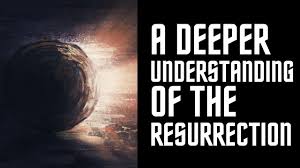The Danger of MLMs
Myths, lies, and misunderstandings (MLMs) hinder our ability to accept the reality of life and death. Since our belief systems influence our behaviors and the choices we make, a misstep or error in belief can have ramifications that, literally, impact us “forever.”
MLMs, in general, are not biblical. The enemy offers subtle counterfeits that cause us to either doubt, question or compromise what we know is God’s truth. Therefore, it is important for believers to compare MLMs with the truth. Truth can be found in God’s Word.
Below are popular MLMs we often hear. The examples cited are by no means an exhaustive list, but given to provide insight as to some of the erroneous views on heaven and eternity.
Myths
Myths are often connected to spirituality or other religious beliefs versus Christian doctrine. These myths include, for example, the belief that we will be given a second chance to choose where we will spend eternity.
Myths can result in a false sense of spiritual security. We get one chance to make the right choice (Acts 4:12).
Many myths are often tied to what heaven or hell will be like.
- Heaven will be a dreamy, floating existence in the clouds.
Heaven is the place where we will continue to serve the Lord (Rev.7:14-15). Just as Adam was given charge of the Garden of Eden (Gen. 2:15), we will fulfill the God-glorifying, personally fulfilling work that was part of God’s original plan for our life.
- Hell is a place where there’s always a good time and party.
Hell was initially designed to house Satan and those fallen angels that participated in open rebellion against God in heaven (Isa. 14:12-15). While hell was not originally created for human beings, it is now available for those who reject Christ.
People who joke about wanting to go to hell is so much foolishness. There will be no partying in hell only darkness, weeping, and gnashing of teeth (Matt. 8:12; 13:42) .
Lies
Lies are the most dangerous MLM. Why? Because our belief in them can result in our being in a place we don’t want to be for eternity. There will be no “do-overs”. The following are the most frequently cited and the most deadly lies. These are Satan’s favorites.
- There is no heaven nor hell.
God’s Word tells us that there is a heaven and a hell. And every word of God is “yes and amen.” (2 Cor.1:20)
JESUS SAID He was going to prepare a place for us (John 14:2). We know that when “our tabernacle is dissolved we have a building of God, a house not made with hands, eternal in heaven.” (2 Cor. 5:1)
Hell is real (Matt. 25:41, 46). It is a place of eternal punishment. There are two popular views that attempt to negate the reality of hell. One teaches that unbelievers are not punished after death. They simply cease to exist (annihilation). The other proposes that because God is good and loving, He would never condemn anyone to a place of eternal torment (universalism).
God doesn’t send people to hell. People send themselves to hell by declining Jesus’ offer of salvation.
- All roads lead to heaven.
While this may be a very popular view, the Bible teaches that the only way a person can go to heaven is on “God’s terms”. He has made His terms very clear in His inherent Word and by Jesus Himself.
“Verily, verily, I say unto thee, Except a man be born again, He cannot see the kingdom of God.” (John 3:3)
“For God so loved the world that He gave His only begotten Son, that whosoever believes in him shall not perish but have eternal life.” (John 3:16)
“I am the way, and the truth, and the life; no one comes to the Father but through Me”. (John 14:6)
Salvation is found in no one else but Jesus (Acts 4:12). Anyone who teaches any other way to salvation is in danger of damnation (Gal. 1:6-9).
Misunderstandings
Misunderstandings are often the results of incomplete or incorrect information. While they are the most benign of the MLMs, it is still important to seek out reliable and accurate information about eternity. Acceptance of correct information, of course, is dependent on our willingness to change our view (Prov. 2:6).
- God is responsible for death.
Well-intentioned people console loved ones at the death of a family member with statements such as, “God wanted them with Him.” “They’re in a better place.” “God knows what He’s doing.”
They ascribe death to God. In reality, death is the result of man’s sin in the Garden of Eden. It is a guarantee we will all die. The best way to be with family in eternity is to receive Jesus as Savior.
- We will worship God in a tabernacle in heaven.
The tabernacle of the Old Testament and the church structure today provide a physical place to worship God.
However there is need for neither in heaven because we will live in God’s presence. The object of our worship, God, will be with us throughout eternity. We will freely worship God continuously (Rev. 21:3,22).
The True Beauty of Eternity
Our understanding of eternity influences all that we do today. It becomes the filter by which we evaluate how we spend our time; what we focus on: where we place our priorities.
Eternity, most importantly, is where we will spend forever with Jesus. Our relationship will never be interrupted by our busy schedule, our unconfessed sin, or the enemies’ firey darts aimed against our faith.
Tony Evans in his book, Eternity: Understanding Life After Death, shares his thoughts on our relationship with our Savior in eternity.
Before we get too excited about heaven, Jesus wants us to get excited about being with him first. Being with Jesus and face to face fellowship for all eternity is what will make heaven so heavenly. All the beauty of heaven is really just the backdrop, the scenery, for our eternal relationship with Christ. The central thing of heaven is that we will see our Savior, face-to-face, and be with him for eternity.
Next week we will close our series on eternity with “Where do we go from here?










